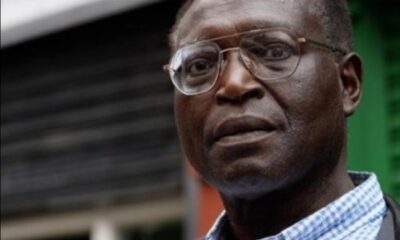Headline
Tinubu’s Full Speech At 2nd ECOWAS Extraordinary Summit On Niger Crisis
Published
9 months agoon
By
Editor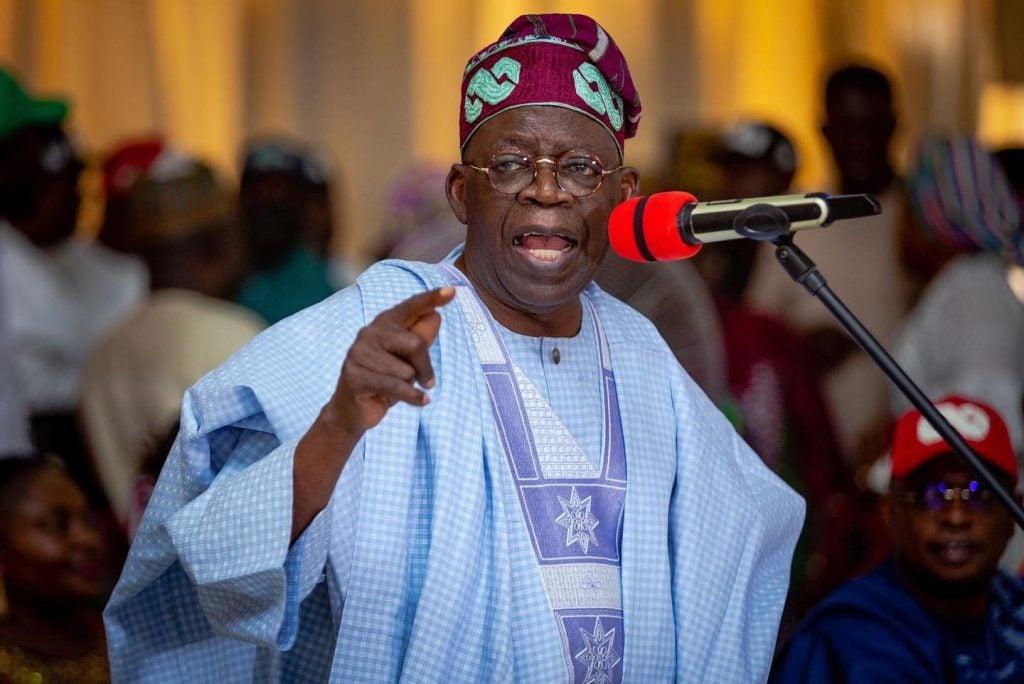
Your Excellencies, Heads of State and Government;
Your Excellency, the President of the ECOWAS Commission;
Your Excellency, President of the African Union Commission;
Your Excellency, President of the UEMOA Commission;
The Special Representative of the Secretary General of the United Nations in West Africa and the Sahel; and
Distinguished Ladies and Gentlemen.
Let me commence by welcoming you all to the Second (2nd) Extraordinary Summit on the Socio-Political Situation in the Republic of Niger, within the space of ten days. Your presence here, despite the short notice, demonstrates the unwavering dedication of our esteemed community to finding a lasting solution to the political situation in the Republic of Niger.
Today, we gather with a profound sense of urgency and firm determination, building upon the commitments made during our first Extraordinary Summit, on the grave political crisis befalling our sister nation. During that initial meeting, we voiced our solidarity with the people of Niger and their democratically elected President, H.E Mohamed Bazoum, by condemning the military take over and the unjust detention of their democratically elected President.
Your Excellencies, Distinguished Ladies and Gentlemen,
READ ALSO: Mali, France Suspend Issuing Visas In Escalating Row
As you may recall, we called on the junta to rescind its decision of toppling a legitimate government. We proceeded to impose sanctions with the hope that this resolute measure would serve as a catalyst for the restoration of the constitutional order in Niger. Regrettably, the seven-day ultimatum we issued during the first Summit has not yielded the desired outcome. We have also made diligent efforts through the deployment of various ECOWAS mediation teams, to engage the military junta for a peaceful resolution of the political situation. One of the facilitators, former Head of State of Nigeria, General Abdulsalami Abubakar, would update us on the outcome of his mission to Niamey.
Similarly, as part of a coherent diplomatic initiatives, Special Envoys were dispatched to non-ECOWAS nations, particularly Libya and Algeria. During these engagements, the Envoy designated for Libya had the privilege of an audience with the President of Libya. This discourse resulted in an unequivocal expression of support for the resolutions adopted by ECOWAS aimed at restoring constitutional governance in Niger. In Algeria, the Envoy was received by the Minister of Foreign Affairs on behalf of the President of the country. These initiatives are aimed at presenting a cohesive and united stance regarding the ongoing circumstances in Niger, thus showing a collaborative and concerted approach among African nations.
Your Excellencies, Distinguished Ladies and Gentlemen,
Following the resolution of our previous Extraordinary Summit to initiate a meeting of the ECOWAS Chiefs of Defense Staff, the meeting of the Chiefs of Staff Committee was duly held from 2nd to 4thAugust, 2023. The outcome of that meeting, as well as a Memorandum by the President of the ECOWAS Commission on current socio-political developments in Niger, will be presented during this Summit. These will offer critical insights that will inform our collective decision-making process at this meeting.
Today’s Summit provides a significant opportunity to meticulously review and assess the progress made since our last gathering. It is essential to evaluate the effectiveness of our interventions and identify any gaps or challenges that may have hindered progress. Only through this comprehensive assessment can we collectively chart a sustainable path towards lasting peace, stability, and prosperity in Niger.
READ ALSO: Nigeria Ranks 4th In World’s Population Of Medical Doctors
Moreso, in reaffirming our relentless commitment to democracy, human rights, and the well-being of the people of Niger, it is crucial that we prioritize diplomatic negotiations and dialogue as the bedrock of our approach. We must engage all parties involved, including the coup leaders, in earnest discussions to convince them to relinquish power and reinstate President Bazoum. It is our duty to exhaust all avenues of engagement to ensure a swift return to constitutional governance in Niger.
More specifically, as leaders of our respective nations, we must recognize that the political crisis in Niger not only poses a threat to the stability of the nation but also has far-reaching implications for the entire West African region. By remaining steadfast in our adherence to the principles of democracy, good governance, and the rule of law, we can restore peace, stability, and prosperity in the Republic of Niger, thereby fostering an environment conducive to growth and development for all.
Esteemed Excellencies, Distinguished Ladies and Gentlemen,
I am confident that this 2nd ECOWAS Extraordinary Summit on the Socio-Political Situation in the Republic of Niger will be a defining moment in our journey towards a stronger, more resilient, and integrated West Africa. Let us seize this opportunity to make a lasting impact on the lives of our fellow Africans as we strive to build a future defined by peace, progress, and prosperity.
In conclusion, I extend my gratitude to each of you for your attention to this critical issue. I trust that our deliberations will be productive and fruitful, leading us to find an amicable solution to the political crisis in Niger. As we continue to work together in solidarity and harmony, we can ensure a prosperous future for the entire West African region.
With these remarks, I hereby declare this Extraordinary Summit open.
Thank you all, for your attention.
You may like
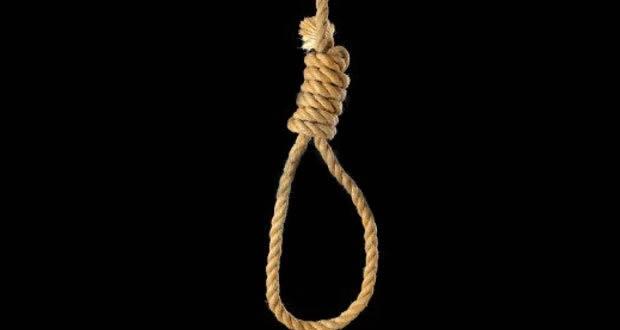
Iran on Saturday hanged at least seven people, including two women, while a member of its Jewish minority is at imminent risk of execution as the Islamic Republic further intensified its use of capital punishment, an NGO said.
Parvin Mousavi, 53, a mother of two grown-up children, was hanged in Urmia prison in northwestern Iran along with five men convicted in various drug-related cases, the Norway-based Iran Human Rights (IHR) said in a statement.
In Nishapur in eastern Iran, a 27-year-old woman named Fatemeh Abdullahi was hanged on charges of murdering her husband, who was also her cousin, it said.
IHR says it has tallied at least 223 executions this year, with at least 50 so far in May alone. A new surge began following the end of Persian New Year and Ramadan holidays in April, with 115 people including six women hanged since then, it said.
READ ALSO: Burkina Faso, Mali, Niger Finalise Regional Alliance Project
Iran carries out more recorded executions of women than any other country. Activists say many such convicts are victims of forced or abusive marriages.
Iran last year carried out more hangings than in any year since 2015, according to NGOs, which accuse the Islamic republic of using capital punishment as a means to instill fear in the wake of protests that erupted in autumn 2022.
“The silence of the international community is unacceptable,” IHR director Mahmood Amiry-Moghaddam told AFP.
“Those executed belong to the poor and marginalised groups of Iranian society and didn’t have fair trials with due process.”
READ ALSO: Israeli Leaders Disagree Over Post-war Gaza Governance Amid US Pressure
‘Killing machine’
IHR said Mousavi had been in prison for four years. It cited a source as saying she had been paid the equivalent of 15 euros to carry a package she had been told contained medicine but was in fact five kilos of morphine.
“They are the low-cost victims of the Islamic Republic’s killing machine, which aims at instilling fear among people to prevent new protests,” added Amiry-Moghaddam.
The group meanwhile said a member of Iran’s Jewish community, which has drastically reduced in numbers in recent years but is still the largest in the Middle East outside Israel, was at imminent risk of execution over a murder charge.
Arvin Ghahremani, 20, was convicted of murder during a street fight when he was 18 and is scheduled to be executed in the western city of Kermanshah on Monday, it said, adding it had received an audio message from his mother Sonia Saadati asking for his life to be spared.
READ ALSO: 50-year-old Man Dies While Watching Football Match In Lagos Bar
His family is seeking to ask the family of the victim to forgo the execution in line with Iran’s Islamic law of retribution, or qesas.
Also at risk of execution is Kamran Sheikheh, the last surviving member of a group of seven Iranian Kurdish men who were first arrested between early December 2009 and late January 2010 and later sentenced to death for “corruption on earth” over alleged membership of extremist groups, it said.
Six men convicted in the same case have been executed in the last months almost one-and-a-half decades after their initial arrest, the last being Khosro Besharat who was hanged in Ghezel Hesar prison outside Tehran this week.
There has been an international outcry meanwhile over the death sentence handed out last month to Iranian rapper Toomaj Salehi, seen by activists as retaliation for his music backing the 2022 protests. His lawyers are appealing the verdict.
AFP
Headline
Israeli Leaders Disagree Over Post-war Gaza Governance Amid US Pressure
Published
3 hours agoon
May 18, 2024By
Editor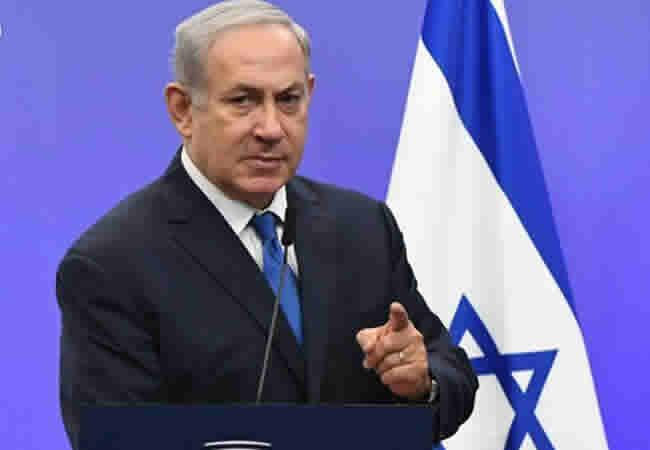
New divisions have emerged among Israel’s leaders over post-war Gaza’s governance, with an unexpected Hamas fightback in parts of the Palestinian territory piling pressure on Prime Minister Benjamin Netanyahu.
The Israeli army has been battling Hamas militants across Gaza for more than seven months while also exchanging near-daily fire with Iran-backed Hezbollah forces along the northern border with Lebanon.
But after Hamas fighters regrouped in northern Gaza, where Israel previously said the group had been neutralised, broad splits emerged in the Israeli war cabinet in recent days.
Netanyahu came under personal attack from Defence Minister Yoav Gallant for failing to rule out an Israeli government in Gaza after the war.
The Israeli premier’s outright rejection of post-war Palestinian leadership in Gaza has broken a rift among top politicians wide open and frustrated relations with top ally the United States.
Experts say the lack of clarity only serves to benefit Hamas, whose leader has insisted no new authority can be established in the territory without its involvement.
READ ALSO: 400 Bodies Found In Mass Grave In Gaza Hospital
“Without an alternative to fill the vacuum, Hamas will continue to grow,” International Crisis Group analyst Mairav Zonszein told AFP.
Emmanuel Navon, a lecturer at Tel Aviv University, echoed this sentiment.
“If only Hamas is left in Gaza, of course they are going to appear here and there and the Israeli army will be forced to chase them around,” said Navon.
“Either you establish an Israeli military government or an Arab-led government.”
US pressure
Gallant said in a televised address on Wednesday: “I call on Prime Minister Benjamin Netanyahu to make a decision and declare that Israel will not establish civilian control over the Gaza strip.”
The premier’s war planning also came under recent attack by army chief Herzi Halevi as well as top Shin Bet security agency officials, according to Israeli media reports.
READ ALSO: Israel Bombs Gaza, Fights Hamas Around Hospitals
Netanyahu is also under pressure from Washington to swiftly bring an end to the conflict and avoid being mired in a long counterinsurgency campaign.
Washington has previously called for a “revitalised” form of the Palestinian Authority to govern Gaza after the war.
But Netanyahu has rejected any role for the PA in post-war Gaza, saying Thursday that it “supports terror, educates terror, finances terror”.
Instead, Netanyahu has clung to his steadfast aim of “eliminating” Hamas, asserting that “there’s no alternative to military victory”.
Experts say confidence in Netanyahu is running thin.
“With Gallant’s criticism of Netanyahu’s failure to plan for the day after in terms of governing Gaza, some real fissures are beginning to emerge in the Israeli war cabinet,” Colin P. Clarke, director of policy and research at the Soufan Group think tank, wrote on X, formerly Twitter.
“I’m not sure I know of many people, including the most ardent Israel supporters, who have confidence in Bibi,” he said, using Netanyahu’s nickname.
READ ALSO: Fight-to-finish: Israel Deploys New Military AI In Gaza War
Hostage ‘impasse’
The Gaza war broke out after Hamas’s attack on southern Israel which resulted in the deaths of more than 1,170 people, mostly civilians, according to an AFP tally of Israeli official figures.
The militants also seized about 250 hostages, 125 of whom Israel estimates remain in Gaza, including 37 the military says are dead.
Israel’s military retaliation has killed at least 35,386 people, mostly civilians, according to the Hamas-run Gaza’s health ministry, and an Israeli siege has brought dire food shortages and the threat of famine.
Many Israelis supported Netanyahu’s blunt goals to seek revenge on Hamas in the aftermath of the October 7 attack.
But now, hopes have faded for the return of the hostages and patience in Netanyahu may be running out, experts said.
On Friday, the army announced it had recovered bodies of three hostages who were killed during the October 7 attack.
After Israeli forces entered the far southern city of Rafah, where more than a million displaced Gazans were sheltering, talks mediated by Egypt, the United States and Qatar to release the hostages have ground to a standstill.
“The hostage deal is at a total impasse — you can no longer provide the appearance of progress,” said Zonszein of the International Crisis Group.
“Plus the breakdown with the US and the fact that Egypt has refused to pass aid through Rafah — all those things are coming to a head.”
Headline
Burkina Faso, Mali, Niger Finalise Regional Alliance Project
Published
6 hours agoon
May 18, 2024By
Editor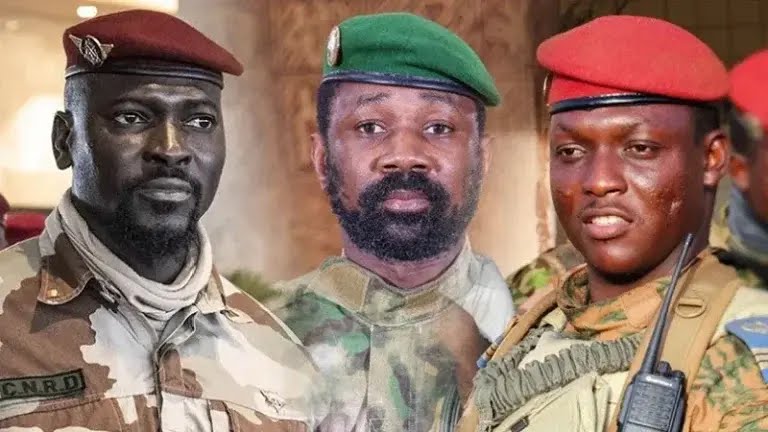
Junta-run Burkina Faso, Mali and Niger have finalised plans to form a confederation after turning their backs on former colonial ruler France to seek closer ties with Russia.
Their foreign ministers met Friday in Niger’s capital Niamey to agree on a text establishing the Confederation of the Alliance of Sahel States (AES).
“The objective was to finalise the draft text relating to the institutionalisation and operationalisation of the Confederation of the Alliance of Sahel States (AES)”, said Niger Foreign Minister Bakary Yaou Sangare as he read the final statement late Friday.
READ ALSO: Court Jails Social Media Influencer For Celebrity Scam
He said the text would be adopted by the heads of state of the three countries at a summit, without specifying the date.
“We can consider very clearly, today, that the Confederation of the Alliance of Sahel States (AES) has been born,” Malian Foreign Minister Abdoulaye Diop said after meeting General Abdourahamane Tiani, the head of Nigerien military regime.
The third foreign minister at the meeting was Burkina Faso’s Karamoko Jean-Marie Traore.
READ ALSO: Tinubu Okays Payment Of N3.3tn Power Sector Debts, Gencos, Gas Producers To Get N1.3tn, $1.3bn
The Sahel region has been subject to deadly jihadist violence for years, which they accused France of not being able to curb.
The three countries said late January they were quitting The Economic Community of West African States (ECOWAS), which they said was under French influence, to create their own regional grouping.
AFP

Excitement, Dance As ‘Looted Ancestral Stools’ Return To Oba Of Benin

Iran Hangs 53-year-old Woman, Six Others

50-year-old Man Dies While Watching Football Match In Lagos Bar
Trending

 Headline5 days ago
Headline5 days agoLady Arrested For Allegedly Harassing, Cyberstalking Crown Prince Of Benin Kingdom [VIDEO]

 Entertainment4 days ago
Entertainment4 days agoVIDEO: Drama As Portable Jumps Gate To Evade Police Arrest

 News5 days ago
News5 days agoEdo Govt Takes Custody Of 4-year-old Girl Used For Adult Content

 Headline4 days ago
Headline4 days ago32-year-old Nigerian Doctor Killed In US, Father Mourns

 News4 days ago
News4 days agoMan Arrested For Invading Plateau Bank With Bomb

 Headline3 days ago
Headline3 days agoPolice Give Tips On How To Report Erring Officers

 Headline5 days ago
Headline5 days ago‘You’re Guilty’ – Judge Roars, Jailed UK-based Nigerian Pastor, Wife 34 Years For Raping, Assaulting Members

 News4 days ago
News4 days agoSee Lagos Environment Commissioner’s Funny Reply To Resident’s Complaint About Neighbours Moaning Loudly At Night

 News2 days ago
News2 days agoUK Denies 74-year-old Mam Permanent Residency After 42 Years Stay

 Entertainment4 days ago
Entertainment4 days agoPolice Arrest Portable






















